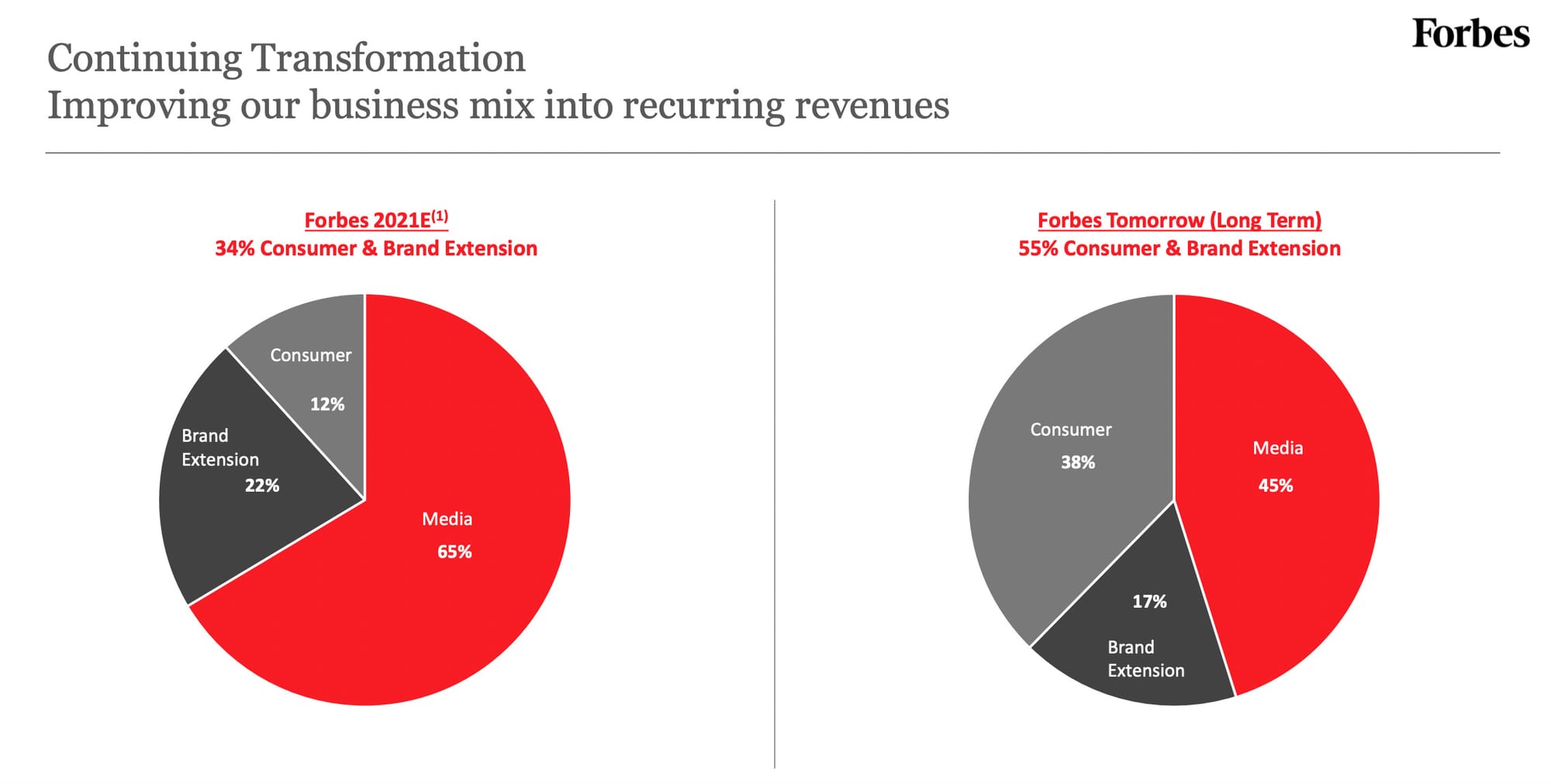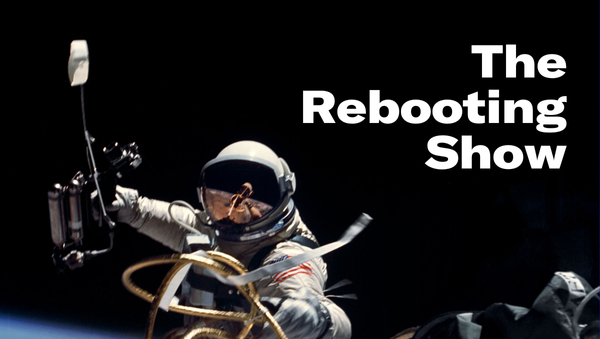The future of Forbes
Forbes COO Jessica Sibley on "the brand that stands for success"
Thanks to everyone who filled out the audience survey. (Still time to take it.) More on the results below. If you have a colleague who you think would find The Rebooting valuable, please share it with them. This week:
- Forbes COO Jessica Sibley discusses the brand’s evolution to focus more on direct revenue.
- Collectives as the middle ground on the individual-institutions continuum
- In-person events are back
As always, send me a note with thoughts, objections, ideas: bmorrissey@gmail.com.


The rules of advertising are changing.
- Consumers are concerned about how their data is being used in advertising, regulators across the globe are closing in, and browsers are blocking third-party data.
- Publishers and advertisers need to develop responsible marketing practices that protect consumers’ data.
Built on the core principles of privacy, consent and transparency, Permutive’s Audience Platform empowers publishers and advertisers to responsibly activate audiences without any third-party access to personal data. Offering insights, modeling and activation in cookie-restricted environments. The data decisions that are made today will impact your ability to continue to effectively execute digital marketing in the future.

The evolution of Forbes
Forbes is a unique brand that has global cultural cachet that’s managed the transition from being a magazine business to a mostly digital business, with an emphasis on building its direct revenue as well as its brand extensions. Now it’s looking to build out its consumer business. This slide stood out in the Forbes SPAC filing presentation:

Jessica Sibley was named COO of Forbes in January, following two years as Forbes CRO and a total of eight years in top sales positions at the publisher. “We're the brand that stands for success and entrepreneurial capitalism,” she told me on this week’s episode of The Rebooting Show. “What's so exciting is today success has no age restriction, it's got no expiration date and it’s a global opportunity for everyone to be an entrepreneur.”
Some highlights from our talk:
- Franchises matter. Forbes started its 30 Under 30 list a decade ago that’s now grown into what Jessica calls a global community. “What started out as a list has become this global phenomenon of individuals that care about this community,” she said “Being on the list has actually dramatically changed their professional, financial and personal lives.”
- In-person events are back. Forbes has a large in-person events business, including a dedicated events space, Forbes on Fifth. Jessica said that after a pivot to virtual during Covid, she’s seeing a robust rebound for in-person events. “The market is ready,” she said. “Wherever I go to conferences, whether they're Forbes or industry conferences, they say this is the largest audience attendance in history, not just recently, but in history.”
- Recessions are times for listening. All signs point to an economic slowdown, and Jessica says the recent experience of the onset of Covid provides a good guide for publishers to be more efficient, move quickly to spin up new products for changed circumstances and, most of all, listen to clients. “We were able to build products quickly – whether it was our virtual platform or lead-gen platform, some of the consumer products, some of the branded content products – that we took to market that allowed for some flexibility,” she said. “We played a shorter game versus a longer game.”
Check out the full podcast on Apple, Spotify and Anchor. Apologies for some wonkiness in the feed last week from switching hosting providers from Substack to Anchor.

Chatting with Workweek’s Adam Ryan
I try to reject false choices that treat the world as binary, whether subscriptions vs ads or individuals vs companies. Most times the answer is somewhere in the middle, and there’s no one right fit. Substack isn’t going to replace The New York Times, but there’s little doubt that the pendulum in publishing has shifted more in the direction of individuals rather than purely institutional brands. Workweek is a great example of a middle ground, putting individual “creators” (still can’t stand the term as applied to people writing about fin-tech) at the forefront of a new B2B publishing brand. Workweek CEO Adam Ryan and I discussed the direction the publishing business is going on his podcast, Media Moves.

The events rebound
Covid cases are back on the upswing, but in-person industry events are back, as Jessica noted. On Thursday, I’m speaking at the PPA Festival in London. (Check out the agenda if you’re in town.) This weekend, I’m speaking at DLD in Munich. For all the success of virtual events in bridging the gap during Covid, few I’ve spoken to believe they’ve replaced the value of in-person events. Much of that stems from the type of media events are. Most are far less about the content – it’s important, but not 80% of the value like in other media – and far more about “community,” which in most cases leads back to making business connections. That’s best done in person, and it will be until whatever the metaverse is becomes widespread and not deeply weird. The Rebooting audience survey – one more reminder that you can still add your two cents – highlighted that: 47% expressed interest in in-person events and 40% in executive dinners. I’m planning to do both in the fall, probably starting in New York City. Get in touch if you want to discuss: bmorrissey@gmail.com.


Launching a streaming service isn’t just for the biggest media players. Applicaster is democratizing the streaming economy by taking a productized approach to what’s traditionally been a cumbersome process to launch OTT apps. Applicaster’s Zapp platform is a comprehensive no/low-code tool to create, distribute, and manage streaming applications across multiple mobile and TV devices. It sits on top of your tech stack, allowing full flexibility without sacrificing scalability. Spend time growing your content business, not building the distribution technology.

Final note: On travel
I was 18 before I flew on an airplane. My parents took me on a trip to London to see my sister, who was doing a junior year abroad at Richmond College. Traveling in the early 1990s was still glamorous. You got real silverware, people dressed up and others smoked. That changed as travel democratized with low cost routes. Flying to Europe for a weekend became somewhat normal. Along the way, travel became commoditized experience, less about the discovery and ultimately more about the ‘gram. Arriving back in London yesterday, I was reminded that coming somewhere new — this is probably my 25th trip to London since that trip in 1991 — is still magical. It breaks routine and is a good reminder of how vast and varied the world is, even if you spend most of your life in one place. Travel is different now and likely will remain different as we come to terms with climate change and the era of cosmopolitan transience gives way to a retreat, hopefully temporary, to the pursuit of parochial interest. I hope as it becomes more rare to fly somewhere new we end up appreciating it all the more.

Thanks so much for reading. I’m heading from London to Munich this weekend for DLD, where I’ll speak about the idea of “farm-to-table” media. Send me a note with feedback: bmorrissey@gmail.com.




